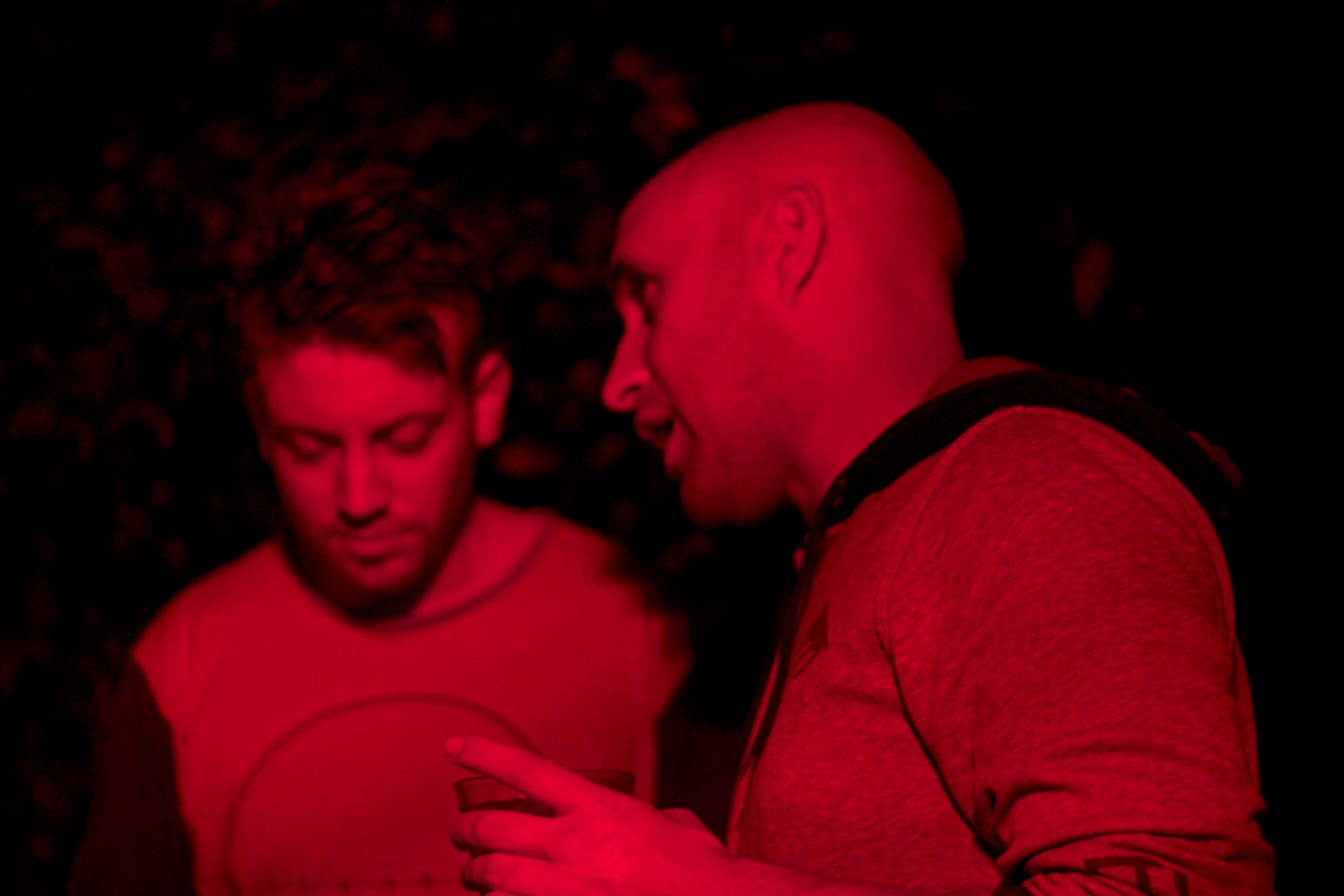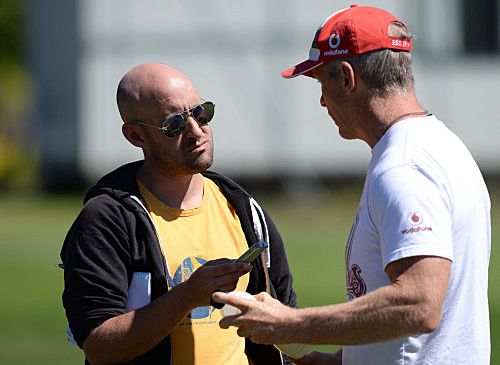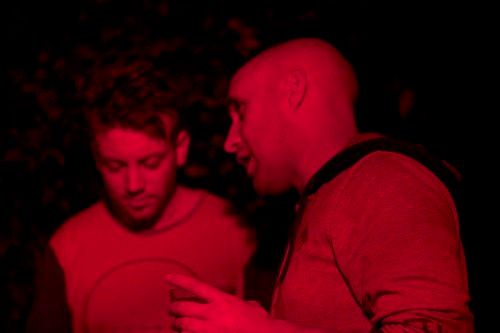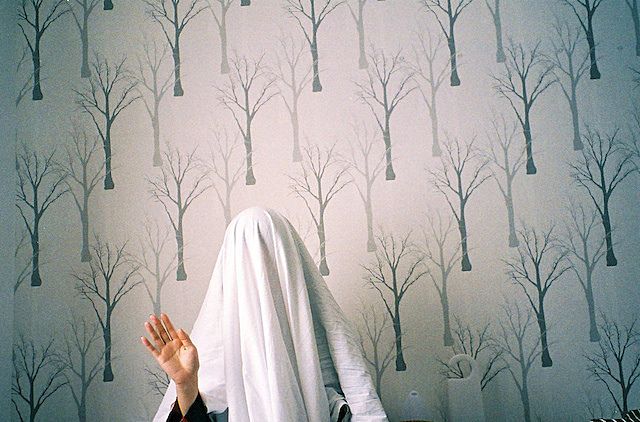Being In The Room: Ben Stanley
Gavin Bertram's review of the new school of Kiwi journalism continues with a conversation with Ben Stanley, a two-year winner of the Canons for Newspaper Feature Writer: Sport. Here, he talks about how he got into the game, unconventional methods, and staring at a blank Word doc at three in the morning.
Over the last few years, our print media landscape has benefitted from the emergence of a new group of talented young feature writers. This week, Gavin Bertram sits down with five of them.
After several years with Fairfax Media, Ben Stanley is currently freelancing in the United States, before travelling to the FIFA World Cup in Brazil, and then Spain. He began at the Waikato Times before becoming a sports journalist at the Sunday Star Times, where he was the Canon Media Awards Newspaper Feature Writer Sport winner in both 2012 and 2013. He is again finalist in that category this year.
What drew you to journalism?
I never planned on being a journalist, to be honest. I went to uni at Canterbury and studied civil engineering and it wasn’t really for me. I drank a lot of booze and that sort of stuff. I actually read Jack Kerouac’s On the Road, which is a bit cliché, but I was like ‘I can’t do this, I can’t do the uni thing’ so I dropped out and for three years I was a bricklayer and did construction work and cruised around New Zealand doing odd jobs really. And I fell in backwards. I’m a big letter writer and I used to write these letters to a girl in Christchurch, these lovelorn hopeless letters. She said ‘you’re pretty good at writing, you should be a journo’. I applied for this Fairfax internship, and I got that and got a spot at the Waikato Times. I was in this construction job in Hamilton and I quit, and on my last afternoon I got a call from Bryce Johns the editor of the Waikato Times saying ‘mate, you got it’. I got really pissed that night. So I went in the back door really.
Was feature writing always something that you were focused on?
I’ve always had an interest, and I’m a vociferous reader. But my first love when it comes to writing is poetry - I’ve always enjoyed that. The thing I found with long-form is that you get 1500 or whatever words to tell a story that you only get a glimpse of in a 400 word news story. There are certain techniques, devices that I found really enjoyable. But as soon as I got into my journalism career I was like ‘this is where it’s at. This is the one’.
How have your feature writing skills been developed?
I don’t want to sound cocky but I guess it’s just natural. I’m not your typical journalist. For me, writing is all about language. I like to introduce a few of those poetry techniques in, just the words and the phrases, to hook the readers. And as far as structure goes, just keep it loose, keep it wild. Not in a Hunter Thompson way, but just keeping it nice and loose and keep language in the middle of the room.
And just reading – my favourite feature writers, the Sports Illustrated guys, Gary Smith, Thomas Lake, Scott Raab from Esquire. To be honest one of my most inspirational pieces was when Scott Raab did a profile on Paul Newman, which is just magnificent. There was a line in there - ‘It took a whole lot of beer and fuck-you’ - and it just summed up the guy. For me that was like, you can write a feature and capture someone, but within that feature you can have that one line, which is the poetry thing I guess, that can sum up a human being.
But as far as training, the Waikato Times was great. For feature writers it’s important to be a news reporter first and get a real good news sense, and get hammered as well. Do all the shit jobs and learn from the ground up. Which I did at the Waikato Times. You get treated like shit but you learn a lot. Guys like Tracy Watkins and Geoff Taylor at the Waikato Times were pretty key to me. They encouraged me to keep that natural voice and keep the writing nice and loose. They were key to me, Geoff and Tracy, and Bruce Holloway as well. No training, I didn’t go away on any courses, but heaps of reading. Lots of different stuff - novels and poetry.
What makes a great feature?
I think you know in the first three or four lines if you’re going to keep reading. And if you keep reading it’s probably going to be a great feature. When I read I’m pretty ruthless. If I’m bored straight away I’m like ‘fuck this’, even if it might be a subject I’m interested in.
For me it’s about humanising the subject. I love profile features, just humanising the subject straight away, revealing to the reader this person or situation. They go through shit that we all go through, have been in situations that we’ve all been in. That’s crucial for me, that’s what draws me in, the human element.
How do your stories come to you?
It’s that journalism thing - contact is always key. But I’m a history buff, and I’ve been a sports journalist for the last three years and I love my sports history and going through old almanacs. And arriving at little stories and investigating them further. I love that, but it’s just contact, and having your ear to the ground as well. You’ve got to get the news sense first. No one can come into a newsroom with these dreams of being a feature writer straight off the bat. You’ve got to do your time and your writing will benefit from that.
What’s your first move once you have an idea?
The feature I’m most proud of writing is on this skateboarder called Lee Ralph. I had an interest in skateboarding and what happened was I read Christian Hosoi’s autobiography (My Life as a Skateboarder Junkie Inmate Pastor), who was this far our Californian guy from the late 80s. He went off the rails in a big way and spent time in jail.
I was on YouTube looking at old skateboarding clips, and this clip of Lee Ralph came up. He was this rugged, caveman, Yeti-like beast. And he started talking and he’s a kiwi. I was like, ‘this is awesome! I’ve got to track this cat down’. It was a long process, I went to skate shops and to skateboarders I knew in Auckland and they said ‘you’re never going to find him. He is like the Yeti.’ One day someone gave me a call and said ‘mate, he’s out in West Auckland, here are his digits’. So I shot out there with a few beers and got yarning with him.
It’s research. You find your key people in a situation and just go to them. If you want someone to reveal something to you then you have to reveal yourself to them as well. You’ve got to show that you’re just human. A lot of people still have this thing with media, so you’ve just got to go there and be a regular dude. The middle word in journalism is trust; it’s the middle word, and the first word and the last word. You’re going to meet someone and get them to trust you so they know you’re not going to screw them over. You’re there to tell their story, the good, the bad, the ugly.
Journalism is writing the world into reality. It’s warts and all. You learn techniques to get that honesty from people. It’s hard with some people, and it’s about time as well. That’s just as important as trust: time with the subject. The more time, the more they’re going to trust you. And the more you’re there the more likely they are to say ‘I did this...’. I love that; when someone tells me something brutally honest about themselves, I’m truly humbled. That’s a great part of the job. You trust me enough that you’re telling me this, because you believe I’m the person who can describe this.
To what extent do you endeavour to document the physical environment, the personal traits, the details?
It’s life isn’t it? Life is all about the small details. All the big details happen to everyone: we all do pretty much the same shit in life, more or less. The names change, the vocations change, the place names change, but we more or less do the same shit. What’s different for everyone are these little details, like the lipstick on the coffee mug and stuff like that. It’s crucial for a feature writer to have their eyes open at every point. You have to soak it all in like a sponge when you go to someone’s place. The little things that make up the person are the big things. But I’ve never really liked the word colour - it’s storytelling.
Once you’ve done the interviewing, how do you organise the information before you start writing?
I’m a bit of a last minute guy, I like a bit of pressure at the end. It can be a ‘Hail Mary’ one, or it can all fall flat. I transcribe everything, I note down a few ideas of what I want to do, and it’s bit of a weird sort of way that I do it; I’ll have my ideas and I’ll write them onto a piece of paper and cut it off as a strip. I’ll have about a dozen strips of paper and it’s like a bit of a jigsaw puzzle.
As soon as I’ve met all the people I’ll know straight away what my intro is going to be, and I know how I’m going to close the story. But it’s ordering all that stuff in the middle, so I have all these strips of paper and I move them around. Then I have a structure set in place and I’ll sellotape them to a piece of cardboard and I’ll have little arrows and notes and stuff, and I’ll form my storyboard that way.
Once that’s all done and I’ve got it clean in my head, then I attack the story. And when I do that I wouldn’t say it’ stream of consciousness writing, but when I start I’ll knock it over in four hours and it’ll be done. There’s a bit of tidying up, but that’s more or less the finished process.
Deadline pressure notwithstanding, is the writing actually enjoyable?
Writing is a peculiar thing. I love it; it’s like oxygen to me. It’s like breathing, or eating, or sex, it’s like those activities, it’s a needed part of my life. But it’s like giving birth as well, it’s a painful process. I’ve written features where it’s been the night before deadline and I still haven’t written a word. I’ll be starring at a computer screen at 3 o’clock in the morning and still haven’t started. All that time is not wasted time – eventually you process stuff. It’s fucking heartbreaking, but you get it done.
When you write a good line, that’s a religious experience for a writer. So of course it’s enjoyable, but it’s not a glamorous thing. It’s not an easy thing - Kerouac, Bukowski, Hemingway - none of those cats had it easy. It’s always a tough process, but when you make the magic happen, and you’re in that moment and you’ve really captured something, that’s holiness right there for the writer.
Do you have difficulty kissing a story goodbye?
Nah, I like to get it out the door and clear my mind so I can have a beer and relax. You carry it with you. I’m working on a big piece on Lydia Ko at the moment, and I’ve carried it with me for the last week. I go to bed in these shitty motels, and it’s on my mind, it’s a weight. It’s not writing, but it’s just as much a part of the process as the writing.
So when you get it done and are happy with it it’s like: ‘piss off - I’m done with you now’. And it’s not yours any more. When it’s published, although your byline is on the top and it’s nice to get recognition, you don’t own it any more, it’s for the readers now. You’ve done your bit and it’s time to move on.
Being In The Room continues throughout the week. Ben Stanley tweets, speculates on the next story, and hopes for longform at @benstanleynz.
Previously featured in this series:
Duncan Greive
Naomi Arnold



